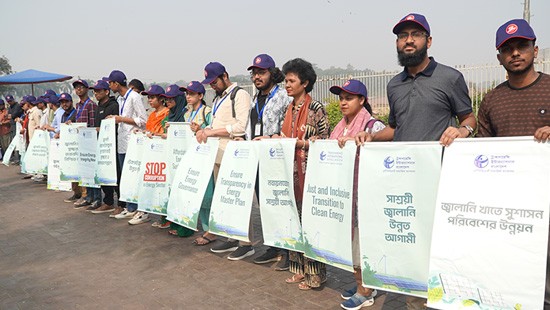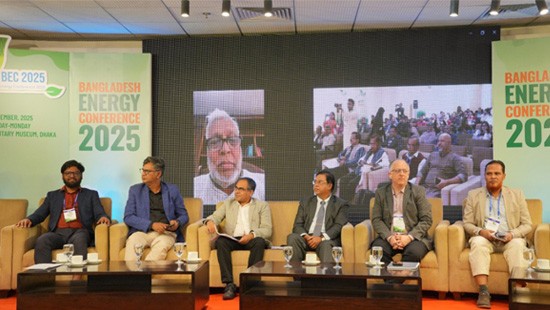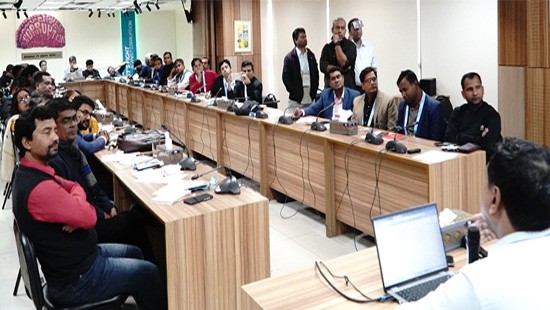Published: 05 April 2022

‘Regulation of Digital Platforms’ Policy (draft) Can Potentially Make Bangladesh a Surveillance State and Restrain Freedom of Speech: TIB
Dhaka, 3 April 2022: There are scopes for the misuse and misinterpretation of some sections in the draft policy on the Regulation of Digital, Social Media, and OTT platforms drafted by the Bangladesh Telecommunication Regulatory Commission (BTRC). Some sections in the policy can be used to gag the freedom of expression and make Bangladesh a surveillance state. This will also put journalists, dissidents, and rights activists at risk and compel the service providers or intermediaries to practice self-censorship.
Terming the draft policy of BTRC as unconstitutional and a threat to privacy, TIB expressed its stance on Sunday at a virtual press conference.
At the press conference, TIB raised its recommendations and concerns regarding 12 sections of the policy (Section-1, 3, 4, 5, 6.02, 7.02, 6.01 (d), 7.03, 10, 12, 7, and 9).
The anti-graft watchdog said the regulation has the potential to substantially undermine freedom of expression and right to privacy, intensify surveillance efforts of the government, prompt a fragmentation of the internet, and compel intermediaries to comply with takedown requests or face draconian criminal penalties (such as fine and imprisonment), as well as the prospects of cancellation of registration or having their services blocked in Bangladesh, which poses significant business continuity risks.
BTRC’s regulation is copied substantially (about 80-85%) from the Information Technology (Intermediary Guidelines and Digital Media Ethics Code) Rules, 2021. Currently, the draft includes provisions on traceability, the appointment of resident officers, criminal liabilities on employees of intermediaries, local presence and registration requirements, content takedown regime, and censorship of speech. However, there are no intermediary liability (or “safe harbour”) protections fundamental to the internet's growth and innovation as an open and secure medium of communication and commerce.
Additionally, another similar policy prepared by the Ministry of Information and Broadcasting (MoIB) appears to be inconsistent with the regulation prepared by the BTRC. It is unclear how the policy and the regulation will interact with one another. It is equally unclear how the policy and the regulation will apply to companies that provide both curated and user-generated content and which government authority – BTRC or MoIB – will exercise jurisdiction over such companies. In a predictable and transparent regime, there should be one instrument and one nodal authority regulating service providers using the internet as a delivery medium to avoid conflict of laws.
Speaking at the virtual press conference, TIB Executive Director Dr. Iftekharuzzaman said, “BTRC has the authority to regulate sensitive/controversial content. The main objective of the policy should be that. But our fundamental rights to freedom of expression and secrecy must also be protected. The policy only talks about regulation but does not mention any steps to enable an atmosphere where constitutional rights are protected. The legal sections lack proper definitions of many things, and the authority can misuse this to target individuals, which will bring in multifaceted problems for people.”
TIB Executive Director also pointed out the draft policy’s mandate to breach end-to-end encryption of messaging services, which will invade privacy for individuals. Bangladesh will turn into a surveillance state if the draft policy is enacted. Bangladesh had a lot of potential in the Digital Bangladesh drive, and this draft policy goes against such progress. We urge the government to learn from the best practices and reshape the draft policy.”






